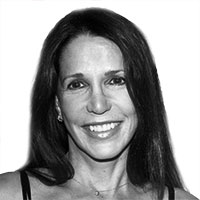When I was a kid, I found my father’s love for America embarrassing. He would get misty-eyed at the National Anthem. His hand over his heart was more than just a required gesture; it seemed as if he was recording every beat, every movement of blood, timing it to the cadence of the music. The sight of the flag would make him pause, retreat to some soft acre of thoughts and dreams.
As I got older, I came to respect his patriotism, even though I disagreed in large part with his politics, particularly in the Sixties when the Vietnam War was raging and a friend of mine joined the Marines, writing me heartbreaking letters about the carnage in that faraway land. Respecting someone’s feelings, however, isn’t the same as identifying with them. I never teared up at any of America’s well known anthems, or at the sight of the flag.
That changed on 9/11. By then, my father was deep into Alzheimer’s and mostly bedridden. On that somber, unwieldy morning, I drove to my parents’ house and saw, on the corner of a busy intersection, a homeless man waving a tattered American flag. The tears that overtook me made it impossible to drive; I had to pull over until they let up. They came from a place so deep in me, I thought they might have been waiting for me all my life. I wept for the country that I knew I’d taken for granted. I wept for the people who had gone to work on that clear blue day, or boarded a plane, never thinking that such horror could visit us here in the land of the free. People who would never see tomorrow.
At my parents’ house, my mother and I leaned over my father’s bed and spoke softly to him. “Something terrible has happened to us,” I told him. “To America. Planes flew into buildings, so many people are dead and none of us know how to make sense of it. I wish you could talk to us.” Language was not available to my father at that point, but I will always believe that his soul heard me; my anchor throughout his journey into Alzheimer’s was my belief that his soul couldn’t have the disease. He was in there, and his heart was breaking along with the heart of the country he loved. On my way home, Whitney Houston’s version of "America the Beautiful" came on the radio and I again had to pull over until my tears stopped. I memorized the place in my body where my love for this country, and my grief for its wounds, resided.
Since January 20th, that same place inside me has brought me to tears on more than one occasion. It’s filled me with a dread of what is to come, and what we might lose. I’ve re-read the Constitution, because that is what we might lose – that exquisite document that is the construct of this land we call America. Because of it, we have a government balanced between three branches and rooted in freedom, openness and fairness. We have a free press that is not censored or controlled by the government. We are a rarity in the world. We have turned down dark paths in our history, but we have always tried to right ourselves by remembering the principles that America was founded upon.
Since January 20th, I have shuddered every time I hear the phrase ‘America First.’ That was the rallying cry of Charles Lindbergh, an unrepentant anti-Semite, and the America First Committee when they wanted this country to ignore the holocaust going on in Germany. They wanted us to close our eyes, our hearts, and our borders. Let us please not forget the origins of that phrase.
Steve Bannon, the architect of this administration, has said he does not remember saying (as Ronald Radosh has claimed) that he is a Leninist who wants to bring everything crashing down. But Bannon has spoken about “deconstructing the administrative state.” He adheres to a theory of historical cycles, espoused by William Strauss and Neil Howe, that includes recurrent crises and claims that we are due for another. Mr. Bannon seems determined to bring that about. There is no love of country in wanting to tear apart its fabric and rip up its foundation. Destruction is not patriotism, it’s the underpinnings of tyranny.
Tyranny doesn’t blow in like a gale-force wind and transform the landscape in a day. It creeps in slowly, methodically. It instills fear, it creates enemies, it restricts freedoms, particularly freedom of the press. By creating and declaring enemies, you are governing by a doctrine of fear.
When Steve Bannon says, referring to the media, “If you think they’re going to give you your country back without a fight, you are sadly mistaken,” he is trafficking in fear. He may be unwashed, but he’s very smart, and well-schooled in the dark art of tyranny.
America, for all its strength and resilience, is not indestructible. No nation is. We will either splinter in fear and rage or we will rise up united in our love of the principles that built this country.
Instead of listening to Steve Bannon, we might want to listen again to Abraham Lincoln: “This nation, under God, shall have a new birth of freedom, and government of the people, by the people, for the people, shall not perish from the earth.”
Patti Davis is the daughter of President Ronald Reagan and an author whose latest novel is The Earth Breaks in Colors.





